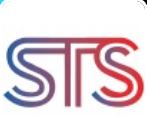You are about to plan the biggest annual event for your sales and marketing team – the sales kickoff meeting. It is not only the biggest annual event but also one that if planned well will help generate revenue like no other through the year. But do these sales kickoff meetings provide the desired outcomes, always?
Data suggests that 95% of the time, sales reps and managers return to their territories, make a few attempts to change how they approach sales, and after a few failed tries, revert to their old behaviors. That’s the status quo.
So, the question arises – despite spending a lavish sum of money on this highly-hyped sales kickoff meeting, why doesn’t every team get the desired results? We researched and observed a few factors that prevent your sales kickoff from achieving success. Let’s take a look.
The Sales Kickoff Illusion
Sales managers are often excited to present in front of their entire sales teams. It’s that one annual physical meeting everyone looks forward to. But let’s explore a few reasons why your sales kickoff meetings might be failing.
1. Lack of Clear Objectives
Sales kickoffs are launched with great zeal and enthusiasm, but do they hinge on clear goals and objectives? The answer is, often, no. While sales leaders invest heavily in bringing all the teams together, the alignment breaks the moment participants leave the meeting room. One core reason is the absence of clear, actionable objectives.
Every meeting, to be successful, must have a common thread and a shared takeaway for everyone. Before your sales reps leave the room, ask each of them to share one key insight they will implement in their daily sales routine.
2. Information Overload
Another reason your sales kickoffs fall short is due to information overload. Without a specific focus, you end up trying to convey everything on your mind.
Ideally, a sales kickoff should have a unifying theme, and every presentation should support it. This ensures consistency and cohesion. In nearly 90% of kickoffs, organizers and speakers try to cover broad topics, lacking real depth and leaving the audience overwhelmed and confused.
3. Focus on Motivation Instead of Measurement
A third reason your sales kickoff may be ineffective is a misaligned focus. Yes, sales meetings are meant to inspire and energize teams, but is your event solely about motivation? Are you also giving your team strategic insights to help them improve their conversations and conversions?
Inspiration is great, but actionable frameworks are even better. Think about what’s missing.
4. Mixed Sales and Marketing Messaging
While we often speak about the alignment between sales and marketing, these functions are still fundamentally different. Messaging that’s appropriate for one may confuse the other. Delivering mixed messages to both teams during the same event dilutes impact and leads to confusion.
This is another common reason why sales kickoffs don’t yield the expected results.
5. No Follow-Ups Throughout the Year
As mentioned earlier, 95% of the time, sales reps return from kickoffs enthusiastic but quickly slide back into old routines after a few failed attempts to apply what they learned.
This is normal human behavior. But do you check in afterward? Do you follow up to see how they’re performing or what obstacles they’re facing in real-world scenarios?
Perhaps, if you did, your sales kickoff would have a longer-lasting impact.
Read More: SalesTechStar Interview with Ann-Christel Graham, Chief Revenue Officer at Sovos
The Ideal Sales Kickoff – And Beyond
Now that we’ve discussed what can make your sales kickoff fail, let’s look at how to make it work. Here are some key points to keep in mind:
Sales meetings should not be just about one-way information transfer or post-session entertainment. They are meant for much more. While many people will tell you how to organize a kickoff, we want to tell you how it should feel.
Consider these essentials:
- Your vision is woven into practical training sessions and skill-building exercises.
- Team members are encouraged to share their on-field experiences. Through well-designed breakout sessions or strategic games, the audience can tangibly feel customer sentiment – both delight and frustration.
- Sales teams are given ample opportunities to practice newly learned skills and evolve their sales personas at a deeper level.
- Leaders are committed to guiding and mentoring teams while cross-pollinating ideas and innovations through group activities executed with purpose and intent.
Wrapping Up
Yes, sales kickoff meetings are expensive. And because they’re expensive, the return on investment should be substantial. However, the reality is that many sales leaders continue to spend heavily on these events even though they often don’t deliver the expected results.
But with the strategies outlined above, the battle is still in your hands. You can steer your next sales kickoff toward real impact by focusing on purpose, follow-through, and strategic alignment.
Here’s to your most successful annual sales meeting yet.
Read More: The Psychology of Sales Enablement: How Tools Are Designed to Empower and Motivate Sales Reps?





















